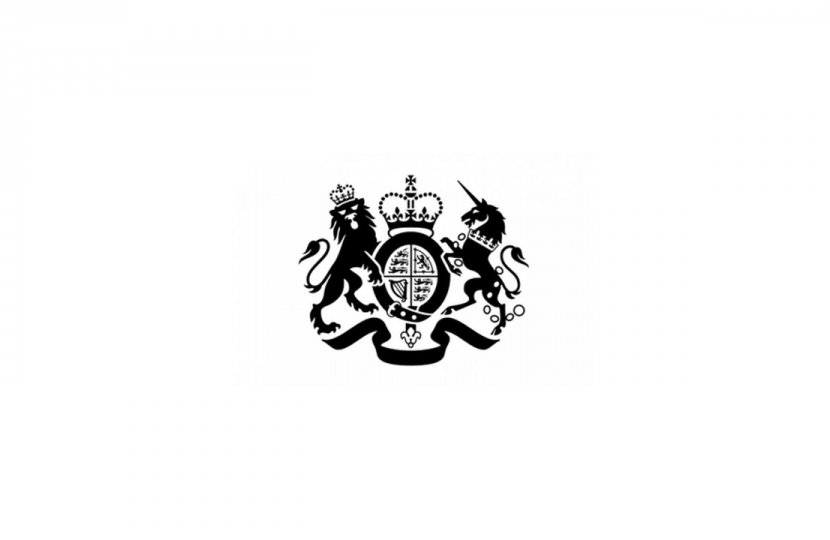
Dear Colleague,
COVID-19 SUPPORT: FOCUSING ON AND INVESTING IN OUR JOBS RECOVERY
Over the past year, the UK Government has helped millions of people as part of its Plan for Jobs to protect, support and create employment. As we emerge from the pandemic and learn to live with COVID-19, we remain focused on creating new, better jobs, and helping people gain the skills they need to succeed. More people are getting back into work, the number of payrolled employees has returned to pre-pandemic levels and there are record levels of vacancies.
This is a tribute to the British people and businesses and a testament to our comprehensive and unprecedented £400 billion package to support people and businesses through the economic shock from COVID-19. Despite the biggest recession in 300 years, our support package has helped to safeguard jobs, businesses and public services in every region and nation of the UK, demonstrating it was right to provide exceptional support while widespread COVID-19 restrictions were in place.
The temporary £20 uplift was an important part of the measures we took, helping people facing the greatest financial disruption, specifically those who came onto Universal Credit because they saw their hours reduced and incomes fall suddenly as a result of pandemic restrictions. We have always been clear that this was a temporary measure, responding to extraordinary circumstances. In line with other emergency support it helped to protect livelihoods through the worst of the pandemic. With most restrictions lifted and with record numbers of vacancies, it is right that we now focus on, and invest in, jobs and improving the prospects for those already in employment as we bring these measures to an end. The Government recognises the importance of giving people time to prepare for a change in their income. Which is why DWP has been proactively communicating this change with claimants. In July, we updated the UC statement to show claimants they have been receiving an additional £86.67 a month in response to the pandemic. In August and September, we notified all claimants via two separate UC journal messages that this temporary measure would be coming to an end.
These messages outline the date of their last payment which includes the uplift and signposts claimant’s to organisations who can help with budgeting, and additionally to the “Universal Credit: help with managing your money” guidance on GOV.UK. Our Work Coaches have been supporting claimants on changes to the uplift during appointments, as well as signposting claimants to additional support if it is required. We have also increased the number of people on the telephone helpline and are monitoring phone lines and UC journal entries to identify vulnerable claimants who may need further support. We will issue a final statement change to inform claimants that Assessment Periods ending on, or after, 6 October 2021 will not include the £20 per week uplift.
We recognise that some people are worried about the cost of living, which is why as well as helping people move into better-paid work and to progress in work, we are also continuing to support people with the cost of living and put more pounds into the pockets of low-income families. This includes raising the National Living Wage, doubling free childcare, supporting households at risk of fuel poverty through the Warm Home Discount, increasing the value of Healthy Start Vouchers and through the Holiday Activities and Food Programme. In addition, our new Household Support Fund will make £500 million available to local authorities during October to help the most vulnerable households with the extra costs of this winter.
The Barnett formula will apply in the usual way, with the devolved administrations receiving up to £79 million of the £500 million. For those who require further assistance managing their money, the Money and Pensions Service (MaPS) provides free and impartial debt advice, money guidance and pension guidance through their MoneyHelper service which can be accessed at www.moneyhelper.org.uk/en. Individuals who require help managing payments, credit or loans could also access breathing space through debt advisors if they are eligible. As our recovery gathers pace, the Government is continuing to help people into work and increase their earning potential – the most sustainable route to financial security and the best route out of poverty.
We’re investing billions through our Plan for Jobs and the Lifetime Skills Guarantee. With over a million vacancies in our labour market and more than 27,000 Work Coaches are helping people get into work and improve their prospects. We’ve got dedicated programmes helping those of all ages; Kickstart for young people; JETS for those directly impacted by the pandemic; SWAPs helping match talent to opportunity by switching sectors; and Restart for the longer term unemployed. But, our support isn’t limited to those seeking work – Work Coaches are able to help those already in jobs with extensive training opportunities and other support to boost their hours and further their employment prospects. With the economy rebounding, and backed by our Plan for Jobs, we have a unique opportunity, to help people move into new and better paid jobs, progress in their existing job, raising their earnings and building their financial resilience.
We are dedicated to these tasks as we build back better and faire

